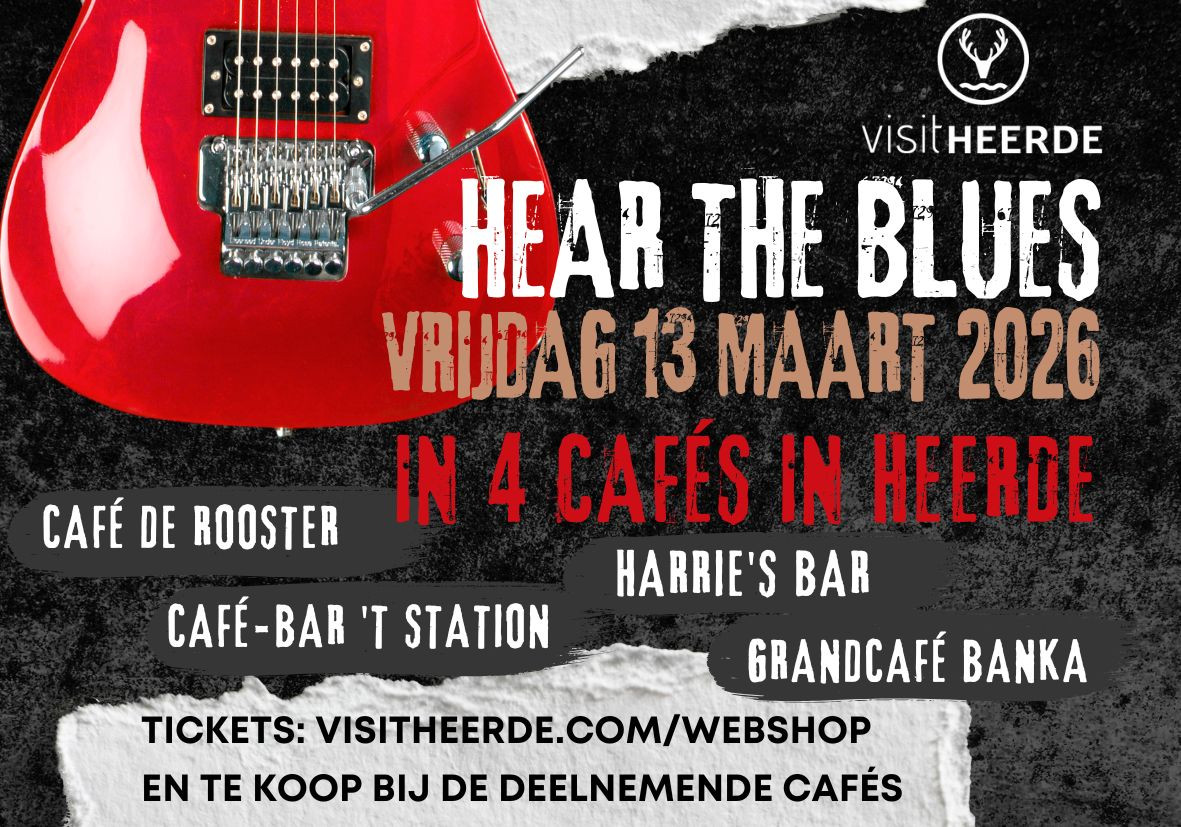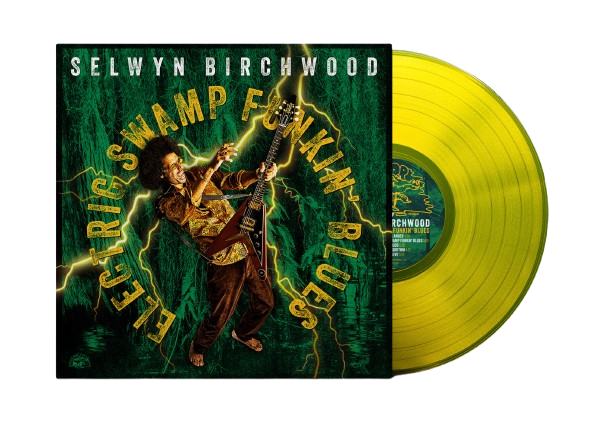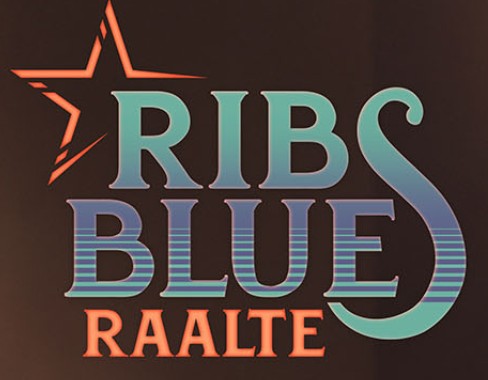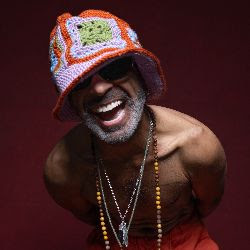So sings an exuberant Shawn Amos on the irresistibly funky title track of the acclaimed singer- songwriter’s most personal and ambitious work to date. With Soul Brother No. 1, the award-winning author, Grammy-nominated producer, and multimedia storyteller returns with ten songs shot through with the exhilaration, pain, and vulnerability of being an African American artist in a world on fire. Rather than shrink from increasingly dire news reports, or life’s curveballs, or haunting memories of a fraught Hollywood childhood, Amos wrangles all of it into block party rave-ups, soul-stirring ballads, and sinewy, defiant blues rock, all with a distinctly ‘70s sensibility. “I am throwing myself out there,” he says. “I’ve never sung like this before, never written this direct before. But I’m still firing on all cylinders, so here I am in all of my joy, rage, and hubris.”
This fierce vitality and spirit of self-reconnection underpinning Soul Brother No. 1 initially emerged through words and story rather than song, as Amos dug deep into his life and generational experience to author his first published book. Grounded from performing during Covid lockdown, Amos penned the NAACP Image Award-winning youth novel Cookies & Milk, a semi-autobiographical tale based on his latchkey kid years as the son of cookie entrepreneur Wally “Famous” Amos and erstwhile nightclub chanteuse Shirley “Shirl-ee May” Ellis. Like the book’s protagonist, Ellis Johnson, Amos was a Black child of divorce with mostly white friends, struggling to find his identity in colorful-but-chaotic ‘70s Hollywood. In those hothouse times, Amos’s hustler father bequeathed him preternatural willpower to manifest big dreams, but feelings of blood kinship came as much from ParliamentFunkadelic, Isaac Hayes, and the Jackson 5 as they did from Amos’s broken home. The rich, righteous world of Cookies & Milk - and 2023 sequel Ellis Johnson Might Be Famous - emboldened songwriter Amos to tap back into his family of choice: the seminal soul artists of the Black power era. Hence, Soul Brother No. 1.
Soul Brother No. 1 represents both the culmination of a unique, two-decade-plus artistic career, and a breakthrough in an ongoing journey of self-exploration. From the get-go, Amos has expressed an ever-evolving musical vision through rootsy Americana, singer-songwriter pop, and, as harmonica ace The Reverend Shawn Amos, the blues. The 2015 debut of “The Rev” marked a significant shift in Amos’s creative work, a watershed moment that led to international tours and Billboard chart success. Through The Rev persona, Amos immersed himself in African American culture, directly linking to the ongoing story of his people’s struggles, triumphs, and unshakable joy. “The whole reason I started playing the blues,” he says, “was it connected me to my race in a way that I hadn’t fully understood. With Soul Brother No. 1, I’m taking that journey even deeper.”
Soul Brother No. 1 returns Amos to himself As he sings in “Back to the Beginning”: “I’m going back to the beginning / So I can see myself, I can meet myself’; and, in the take-no-prisoners album opener “Revelation”: “I’ve been away such a long time / I won’t stand on the outside / Now I’ve had my revelation.”
Seeking new depths, Amos and producer James Saez (Social Distortion, The Road Kings) crafted a sonic world redolent of the socially conscious, Afrocentric ‘70s soul and funk so crucial to the Cookies & Milk narrative. Amos and Saez assembled a dream team: drummer Steve Ferrone (Tom Petty & the Heartbreakers, Average White Band,
Chaka Khan), bassist Jerry “Wyzard” Seay (Stevie Nicks, Keb’ Mo’, Mother’s Finest), keyboardist-songwriter Dapo Torimiro (Lauryn Hill, Earth, Wind & Fire), and longtime Amos guitarist Chris “Doctor” Roberts. Amos and Saez assembled this elite crew in a Los Angeles studio, a short drive from the seedy streets of Amos’s youth, and hit RECORD.
Paradoxically, to achieve the desired emotional punch, Amos chose to step back and engage more collaborators than on previous work. He decided to focus - “Bernie Taupin-style,” he says - on incisive, pared-down lyrics. For the first time, he largely left the music to others, and refined his lyrical message. “There’s virtually no metaphor or cryptic-ness,” he says of his powerful, blunt words. “I’m not hiding behind any turns of phrase that could be read one or two ways.”
While Soul Brother No. 1 faces head-on tough subjects like white supremacy and reparations in “What It Is To Be Black,” racial identity in “Back to the Beginning,” and loneliness in “Circles,” Amos leavens the work with light. “It’s a balance of responsible optimism,” he says. “Shit’s real. But we gotta take personal responsibility in order to drive any sense of optimism.” Quoting album closer “Things Will Be Fine,” he says, “‘Things will be fine... if we let it.’ If we get out of the way.”
“Right now people want to bury their heads in the sand because the news is so dismal. They put blinders on, go deeper into their own silos, spin out these platitudes. But we’ve gotta be responsible to each other, be real about what’s happening, while at the same time we can look for the best in each other. We’re bound together on this rock, there’s no way out without leaning on one another, while at the same time we’ve been cruel. We’ve got to acknowledge that.”
The heart of the album, Amos says, is intense ballad “What It Is To Be Black,” which features the glorious, churchy vocal accompaniment of Nashville’s W. Crimm Singers (AKA Wakanda Chorale). After cutting the vocal, Amos says, “I had a thirty-minute crying fit, just sobbing uncontrollably.” Quoting the lyrics, he says, “‘What it is to be Black /What it is to be always amazed /At the lack of insistence / That we all will be free / When we take freedom seriously.' That’s the key to the whole album: we all deserve a hearing. We owe it to each other to hear each other’s pain. There’s a lot of pain on this album, but there’s also a lot of joy and hope.”
In pre-production for Soul Brother No. 1, an inspired Amos found himself pushing his voice as never before, wrapping his burnished croon around more sophisticated melodies. Of the dozens of voice memos he recorded on his phone, he says, “I wasn’t singing straight blues. It was more soul. I realized I was out of my depth, musically, as a songwriter. I didn’t have the musical capabilities to bring some of the songs to fruition - they needed chord changes I can’t quite execute.” Rather than suggest Amos simplify the melodies, Saez brought in multiinstrumentalist Torimiro, whose co-writing credits include John Legend and Justin Bieber.
Everything fell into place. “Dapo Torimiro is Nigerian,” Amos says. “He understood spiritually what I was trying to do. We finally got the songs across the finish line.” Torimiro’s keyboard- driven music propels the anthemic “Soul
Brother No. 1,” the R & B late night waltz “Circles,” the jazzy “Things Will be Fine,” and pulsing Motown homage “It’s All Gonna Change (For the Better).” Once the songs were written, Amos says, “I was ready to be more revealing, more honest, vocally.”
Integral to Soul Brother No. 1’s expansive musical palette is the frequent sound of strong Black women, singers whose voices both complement and elevate Amos’s own. For “Back to the Beginning,” Amos and Saez enlisted Nashville music royalty the McCrary Sisters. The gospel trio’s full-throated responses to Amos’s passionate vocals evoke an image of a man on a shadowy journey being borne up by his fearless sisters. Raising the rafters on
“Things Will Be Fine,” and a raging cover of the Sly & the Family Stone classic “Don’t Call Me Nigger, Whitey” is
Amos’s duet partner, Grammy-nominated rising star Denise Carite. “It’s the first time I’ve recorded a duet live,”
Amos says. “We were going for a Donny Hathaway / Roberta Flack vibe.”
In the thick of making Soul Brother No. 1, Amos realized, “I’ve spent so much of my life partially dimming my own light. No more. With this album, I am uncovering every last fucking root, undoing my own programming. I was brought up to think I was white, cut off from my own roots. No more. I spent weeks trying to figure out who this version of Black Pride is for me. Now I know. Soul Brother No. 1 is who I am.” Robert Burke Warren
For more information:: Betsie Brown, Blind Raccoon, betsie@blindraccoon.com









Geen opmerkingen:
Een reactie posten